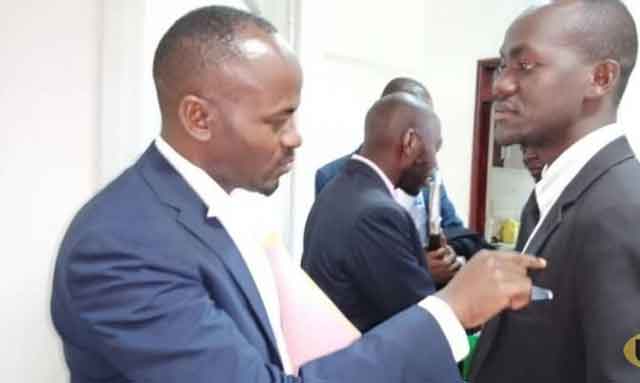
Kampala, Uganda | THE INDEPENDENT | In an unprecedented suit, a city lawyer Steven Kalali has sued the Electoral Commission accusing them of forging of his signature to accept that prisoners would participate in voting in 2026 elections but not in 2021 as earlier ordered by court.
In June 2020, High Court Civil Division Judge Lydia Mugambe ordered the Electoral commission to put in place mechanisms to ensure that Ugandans abroad and the prisoners above 18 years can participate in the 2021 general elections.
Mugambe made the order following a petition filed by lawyer Steven Kalali who argued that the exclusion of prisoners and Ugandans in the Diaspora from voting for over 20 years since the constitution was promulgated amounted to discrimination and segregation.
In his petition, Kalali demanded that each of the prisons in Uganda be declared a registration and polling Center ahead of the 2021 general elections, which the Judge agreed with and accordingly issued orders to that effect.
However, days later, the Electoral Commission through its lawyers led by Hamidu lugoloobi and Eric Sabiiti filed an application for review saying that it didn’t have funds to comply with the court order.
The Commission also argued that they had closed the National Voters Register and they had limited time towards the elections alongside the challenges of the COVID-19 lockdown which wouldn’t allow them to comply effectively with the court orders.
As a result, a consent order dated July 20 2020 was endorsed by High Court Judge Esta Nambayo. This was at the time when courts were in vacation. The endorsed order indicated that Kalali and his lawyers had conceded to the application by the Electoral Commission and therefore agreed that the prisoners and Ugandans in the diaspora can vote in 2026 elections.
Now, in his fresh application before the high court Civil Division, the petitioner Steven Kalali wants the court to set aside the consent order in question.
He contends that the said order was obtained either through deceit, misrepresentation or forgery because he was not in court at the time of extracting it and neither did he append his signature to it.
Kalali adds that there was also forgery of his Senior lawyer Deogratious Odokel’s signature who was equally not in court adding that the endorsement was done before the date the application by the Electoral Commission could be ruled upon on August 3 2020.
Kalali explains that on the day of the consent order, he appeared at Court briefly but he later left and told one of his lawyers Joseph Mutyaba that if there’s anything good, he should be informed about the developments so that he could return to court. Otherwise his intention was to return the next day with his senior counsel to be advised whether it was good enough to sign or not.
When Mutyaba informed him about the consent order, Kalali insists that he told him that he would be available the following day together with Senior lawyer Odokel but was shocked to see an order bearing their signatures when they hadn’t signed.
Kalali says that the said forgeries could have been made by the Electoral Commission officials or lawyers who signed the same hurriedly as at all times they wanted him and his lawyers to assent to the order.
One of Kalali’s lawyers Mutyaba supports this position in his affidavit saying that after signing his part, he left the document with Electoral Commission lawyers Eric Sabiiti and Hamid Lugoobi hoping that they would wait for Kalali and Odokel to append their signatures the following day before they could take it to the Judge to put a court seal and stamp. But Mutyaba alleges that he was equally shocked after seeing the signatures of the other individuals who were not in court.
According to his evidence before the court, on September 9th 2020, a report obtained from the Government Analytical Laboratory authored by Senior Government Analyst Catherine Namuwoya, the signature that was put in the consent order was not authored by Kalali whose 15 copies of his known signatures had been submitted to them for verification.
Kalali now wants court to set aside the contentious order so that prisoners can go ahead and vote in 2021 general elections.
When contacted, one of the Electoral Commission’s lawyers Eric Sabiiti for a comment, he said he has not yet been served with a copy of this application and therefore cannot say anything about it.
********
URN
The post EC accused of forging lawyer’s signature to disenfranchise diaspora Ugandans, prisoners appeared first on The Independent Uganda:.
from The Independent Uganda: https://ift.tt/33bjSYF
0 Comments